Fauci Shocked Americans Think Pandemic Over
We're mostly back to "normal" while yet another new strain is surging.
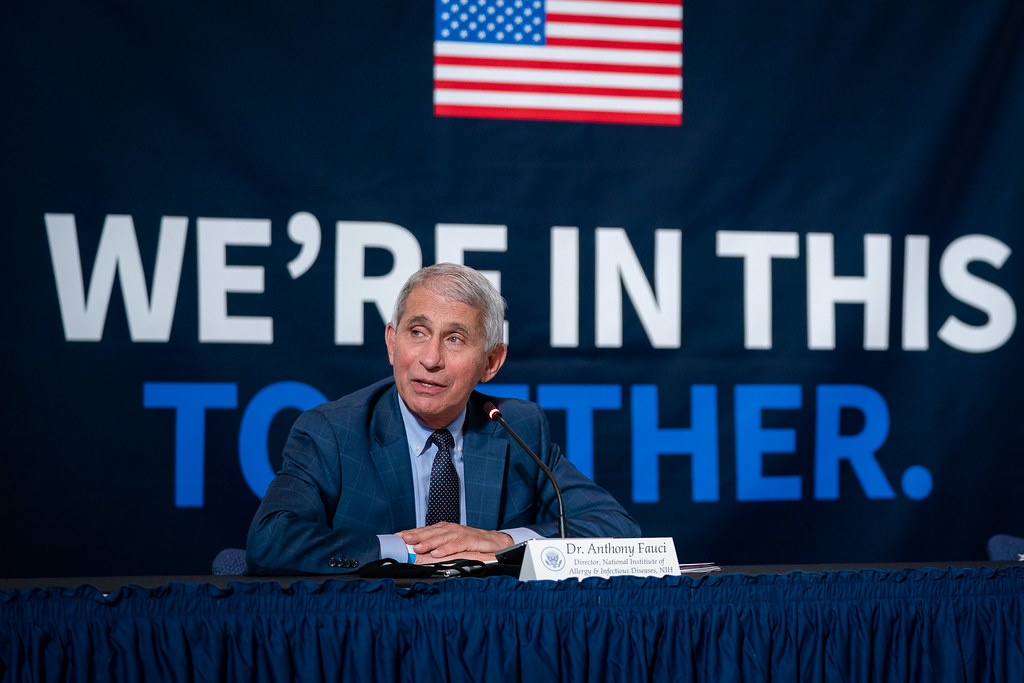
POLITICO, “Fauci privately miffed about the message sent by the WHCA dinner“
Anthony Fauci this week privately criticized the decision to hold the White House Correspondents’ Dinner, singling it out as a troubling sign that many Americans no longer view Covid as a serious threat, four people who heard his remarks told POLITICO.
Speaking on a call with public health experts on Thursday afternoon, Fauci expressed frustration with the growing perception that the pandemic is effectively over. He said he feared people are losing sight of the need to continue protecting the nation’s most vulnerable.
He then pointed to the April 30 WHCA event — which was attended by President Joe Biden and dozens of other administration officials — as an example. The dinner featured thousands of guests and was held inside a Washington Hilton ballroom. It was bookended by similarly well-attended parties and gatherings. Fauci questioned why so many people felt comfortable gathering maskless indoors amid a fresh surge in Covid cases.
Fauci, a top infectious disease expert and Biden’s chief medical adviser, did not directly criticize Biden or other officials, and the people on the off-the-record call said his mention of the correspondents’ dinner came as part of a wider appeal for the health experts to emphasize that the pandemic fight is still ongoing.
But Fauci’s critique stood out because it appeared to put him at odds with the more relaxed stance toward the dinner taken by the White House and Covid-19 Response Coordinator Ashish Jha, who attended the dinner and was also present on the Thursday call.
“Looking back on it, I’m wondering what the hell was going through Ashish’s mind at that point,” one of the people on the call told POLITICO.
Leaving aside the ethics of reporting off-the-cuff remarks made in an off-the-record interview, as I don’t know who it was that leaked the comments to POLITICO and whether they or the reporter here were bound by the agreement, I’m befuddled by Fauci’s befuddlement.
The CDC has told us that most vaccinated and boosted Americans no longer need to mask indoors. And, of course, Fauci himself has told us that we’re out of the pandemic phase of this disease and that it’s now endemic—simply something that we have to live with indefinitely. What does he think people are going to do?
Indeed, public health experts generally speaking are telling us to be cautious—and to get boosters on top of our boosters if we meet certain thresholds—but to otherwise get on with our lives.
Jha did not respond to Fauci’s remarks during the meeting, the people on the call said. On Friday, a White House spokesperson pointed to Jha’s comments during an April 17 television interview that large events like the correspondents’ dinner can be held safely.
“I don’t think events like that need to be canceled,” Jha told Fox News. “I think if people put in good safeguards, they can make it substantially safer, make sure people are vaccinated, make sure you have testing, improve ventilation. Those are strategies we have learned over the last two years.”
And, indeed, the WHCA seems to have done just this:
The White House in the days leading up to the dinner downplayed concerns about attending a 2,500-person gathering during the pandemic, emphasizing that everyone was making a personal decision and stressing the availability of vaccines and treatments necessary to prevent severe disease.
Since then, several attendees have tested positive, including Secretary of State Antony Blinken, though it’s unclear whether they were infected at the dinner or the various parties held throughout the weekend.
The White House Correspondents’ Association required all attendees to be vaccinated and show proof of a negative test. In a statement, WHCA President Steven Portnoy told POLITICO that the organization “implemented protocols that went beyond any guidance or regulation issued by the [Centers for Disease Control] or the D.C. Health Department.
Now, there are plenty of arguments to be made as to whether the WHCA dinner is a good idea. Or whether attending this particular event was worth the minimal additional risk to the President and some of the other elderly attendees. But they’re all really busy public figures who attend multiple meetings, unmasked, on a daily basis.
Still, the decision to hold the dinner for the first time since the pandemic hit the U.S. has come under increasing scrutiny as Covid cases climb nationally once again. Average daily new infections have doubled since the beginning of April, and CDC data shows hospitalizations are now rising as well. Though few expect another spike on par with the winter’s surge, health experts believe cases are likely to continue increasing as more Omicron subvariants spread.
That Covid rebound has also complicated the pandemic messaging for a White House eager to move past the public health crisis and toward an era focused more on managing the disease. Top Biden health officials, including Jha, have sought to straddle the difficult dual message that Covid no longer poses a severe threat to most Americans — but that the nation must keep up precautions to prevent a comeback of the virus.
Days prior to the correspondents’ dinner, Fauci declared on PBS NewsHour that the country was “out of the pandemic phase” — only to later clarify that, while the U.S. was in better shape, it wasn’t out of the pandemic altogether.
People on the Thursday call described Fauci taking an even more urgent tone, venting at one point that those who were returning to their normal lives without concern for vulnerable populations were “irresponsible.”
Fauci is probably right that it’s “irresponsible” for the society to simply go back to pre-pandemic “normal” without regard for those who aren’t protected. But it was always going to happen at some point and Biden and his CDC leadership decided that the public’s patience had worn out.

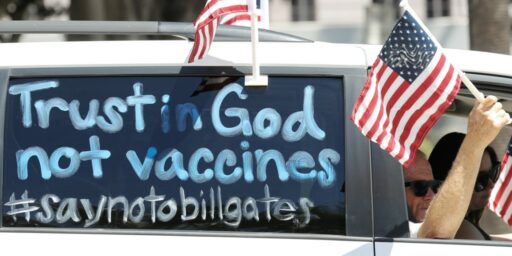
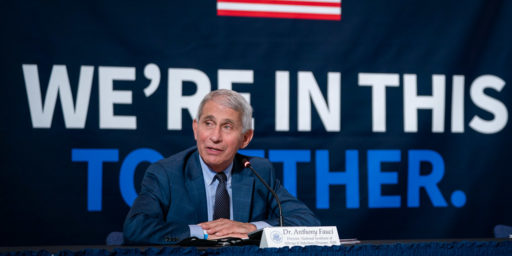
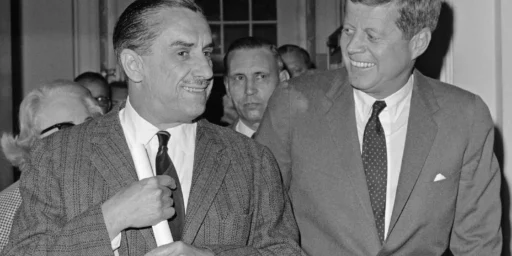
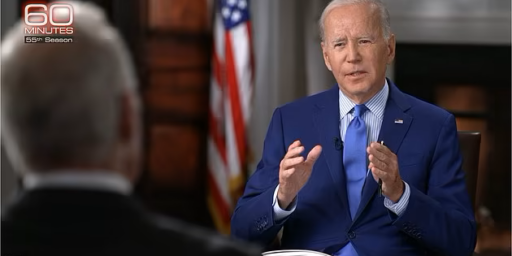
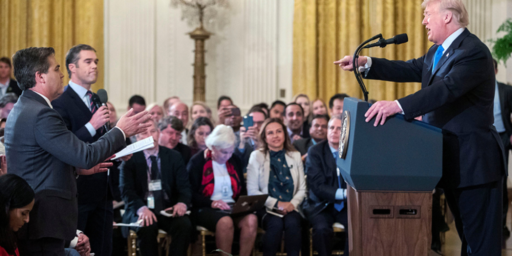
When Fauci says that the country is “out of the pandemic phase,” people are going to take that to mean that the country is…out of the pandemic phase. I.e., it’s over. What did he expect?
It’s time to find do a solid risk assessment and find an appropriate balance. We won’t all agree on that balance, but we do have some measure of control over our own risk. Hospitalizations and deaths are way down, and the majority of people have had at least one bout with one of the variants. Yes, this is a different time than when we knew nothing. We don’t know the long-term effects, but again we can make some educated guesses.
Personally, my whole family had Omicron near the new year. It was quite possible that it came from my ex-wife, and seeing as how I want to see my school-age kids, I managed to contract it as well. It was no big deal, which was a likely result from my privilege of being extremely healthy and vaxxed and boosted.
I’m extra careful around vulnerable people, but otherwise I simply have other priorities than staying cooped up for the rest of my life. At this point, loneliness is at least as bad for health as Covid, personally.
Fauci may be upset that we feel the pandemic is over, but in truth we are moving on to living with it. Even if the governmental response to Covid hadn’t been politicized, the pandemic policies were not sustainable. We’re at the point where the governments role is to provide information and recommendations, after that we will make our own risk assessments.
On the week ending May 1st, the US recorded 2,339 deaths of COVID, and 376,115 cases.
Yeah, it must be all over.
And “miffed”! “Miffed”? A public health expert is concerned people will get sick unnecessarily and perhaps die and POLITICO describes this as “miffed”? Gossip column crap. Horse race reporting on a public health issue. And the horse POLITICO rode in on.
No one seems to have a count of how many people got infected at the HH Corresponders dinner. SoS Blinken has it. Instead of reporting Fauci is “miffed”, the supposedly liberal MSM could be doing a service by reporting clearly a) a significant number of attendees got sick, and b) they’ll probably be OK because they’re VAXXED.
@gVOR08: WH, not HH. iPad and no Edit.
I suspect the general attitude is now: a) we have vaccinations, so if you decide to not get vaccinated, any COVID that you catch is your own fault, and b) the only people who have vaccinations and die from a breakthrough case of COVID are old farts who would be dying of something else if they weren’t dying of COVID so no big loss.
There was always going to be a point where the average American decided the risk had died off enough (especially since the latest version of COVID seems to be impacting most people at about the same level as the flu).
(Just came back from shopping. Most of us are still using masks for grocery shopping, but that’s about it. I am still seeing older people in our neighbourhood going out with masks as well.)
Average number of deaths from the flu per week in the United States from 2010-2019 was about 600. Much higher in the winter, of course. Covid has fallen to within striking distance of that garden variety sickness. It’s quite wise to take precautions with both, but not worth it to me to revolve my life around it.
@Franklin: 2300 and rising (again) is not really within striking distance of 600. And the flu does not result in a lot of disability in younger people.
If you want to make the case that the harm of significant precautions is greater than harm of the disease at present, go for it.
We’re at a point where the disease is running more of less unchecked, and where there is no hope of containment. We have to figure out the new normal. And that new normal may mean greater risk than some people are comfortable with — but don’t pretend that risk is way less than it is.
It’s interesting when we expect our “leaders” to set an example. Which “leaders” we expect this of. And how vocal we are about this.
@Sleeping Dog: And most of those risk assessments will be stupid. FREEDUMB!